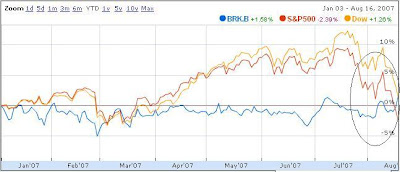*Note: only keep reading if you're one of the people who has asked how I find time to do things or if you have a particular interest in such things. Otherwise, you will probably find this post to be a bit boring as it relates to time management/prioritizing. Also, this post delves into success and hard work - two topics that (yes) go hand in hand.
I've been running an experiment on how I "use" my time the past 4 months. Now that the four months are up, I can take time to reflect on these breakdowns.
I've carefully (and accurately) put down in Excel the hours I work - every single day. I wanted to see what time I got to work and what time I left work, sure, but I also wanted to see how I spend my time at work. For the first two months, I wrote down everything I did (those things that were of note). I then got so busy that writing everything down became cumbersome, so I just took a few minutes to note when I got to work and when I left work.
*Tip: writing down everything you complete (and attempt) is a great way to keep your productivity up. I probably worked harder when I'd look at what I'd done for the day and realized it wasn't (until that point) anything significant.
From there, I conservatively estimated how many hours I spent working on/for/with CK. In truth, there have been weeks when it's been way above my estimate and a few weeks (like the last) where it's been below. Regardless, this works out to a decent extra amount of work per week (and is factored into the graph below).
Then I thought it'd be interesting to see how everything adds up if I include how often I read per week. I've been at a steady 2 to 3 books per week clip, with the occasional drop off. My conservative estimate is factored into the blue line below and while I won't give away the amount I (truly believe) I read per week, I'll give you a hint: at least an hour per day, plus many more on the weekend.
So with the precise measurements of time spent at work (and the two quite conservative estimates of CK related work and reading) you can see see this conservative breakdown of my time spent per week:

That is (again, conservatively) over 70 hours per week, every week, for 4 months. In truth, it's probably closer to an average of over 80 hours per week.
So how do I do it (and why do I do it?) and what are my tips? Firstly, 80 hours per week is not hard to do (seriously!). Rather, it simply requires dedication.
My suggestion is to stick to a relative routine and set daily goals. To give you a taste, these are some of my daily goals: I don't wake up later than 6am on a weekday; I don't go to bed after 11pm on a weekday, save for the occasional Thursday night; I try to (and usually do) read for an hour per day on a weekday and I read even more on the weekend. Instantly, these workweek routines give me 17 hours per day of being awake!
My other tip is to turn off your television. It's not hard to do and you don't miss much (particularly after you've been doing this for awhile). I can't emphasize enough how much time this saves you.
Does this sound boring? Or difficult? Maybe to you, but certainly not to me. I happen to love reading and
reading happens to (generally) make you more knowledgeable. The benefits of my typical week (increased productivity, efficiency, knowledge, etc.) outweigh the negatives (workweek routine, "discipline" though I personally wouldn't count this as a negative).
I've definitely never been happier in my life (and for that matter, I've never been more productive). And
if you want to be successful, I've noticed more and more that a good portion of success comes as a byproduct of hard work.
Working hard then puts you in position for more opportunity, more success, and (perhaps more often) in the way of good luck.
*Addendum, caveat, etc: I am not saying I am successful (I frankly have much more I would like to accomplish!) nor is this post meant to be taken as anything other than
explaining how to maximize your time. I am also not "advertising" how "hard" I work; there are many people out there who work harder and longer hours. The takeaway from this post is that no matter how hard you already work, or how successful you already are, you can always become better (and more efficient). So keep at it!
 Thanks to Abnormal Returns for the source of this post, which is actually just the image you see on the right. One key thing to note is that the risk adjusted return is likely much lower as well, so in the end you were better off investing in bonds (if you had the choice) starting in January 2006.
Thanks to Abnormal Returns for the source of this post, which is actually just the image you see on the right. One key thing to note is that the risk adjusted return is likely much lower as well, so in the end you were better off investing in bonds (if you had the choice) starting in January 2006.




